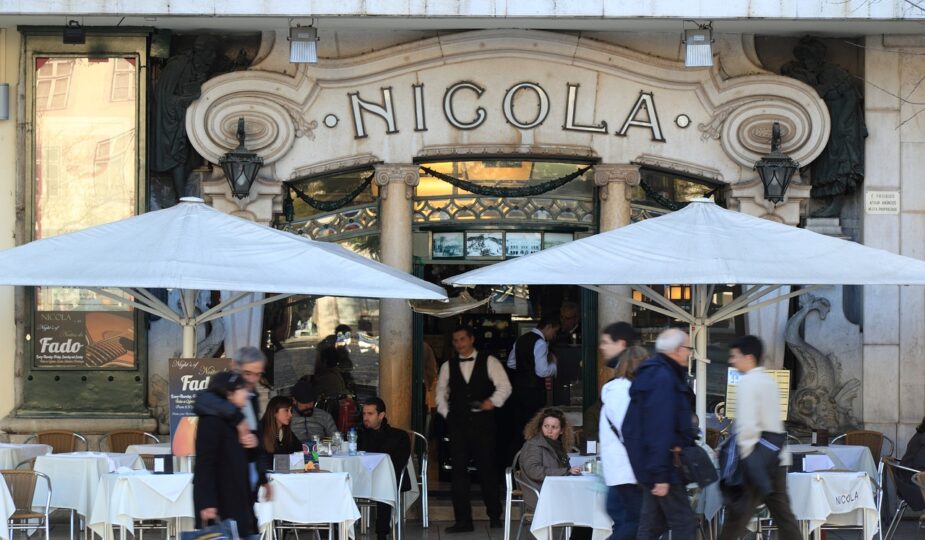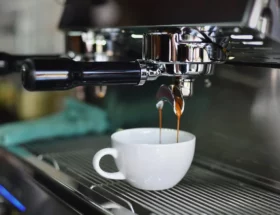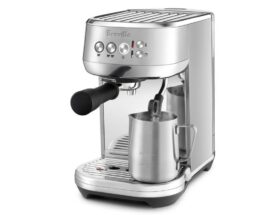
How to Bica and Beyond: Portugal’s Coffee Culture!
Welcome, coffee enthusiasts! If you’re as in love with the rich aroma of freshly brewed coffee as we are, you’re in for a treat! We are about to take a caffeine-packed journey through the heart of Portugal, exploring its distinct espresso culture and divine pastry pairings—an adventure titled ‘Bica and Beyond’!
Table of Contents
- The Essential Equipment for Enjoying Portuguese Coffee
- A Step-by-Step Guide to Making Bica, Portugal’s Signature Coffee
- Frequently Asked Questions
- 1. What is Bica in Portugal’s Coffee Culture?
- 2. What pastries pair well with Bica?
- 3. Where can I find the best Bica in Portugal?
- 4. What other coffee varieties are popular in Portugal?
- 5. How is coffee integrated into Portuguese daily life?
- 6. Do Portuguese people prefer homemade coffee or cafe-bought?
- 7. What is the average price of coffee in Portugal?
- 8. Are there any coffee tasting tours in Portugal?
- 9. What is the best time to enjoy coffee in Portugal?
- 10. What is the traditional method of brewing coffee in Portugal?
- 11. Is a Bica an espresso?
- In Conclusion
Did you know?
Before we embark on this journey, here’s an intriguing fact- do you know bica, the colloquial term for espresso-at-home”>espresso-at-home”>espresso-at-home”>espresso in Portugal, is an acronym? It stands for ‘Beba Isto Com Açúcar’ or ‘Drink This With Sugar’, indicating how the locals enjoy their strong and rich espresso! Now that we’ve piqued your curiosity, let’s dive deeper into this unique coffee culture, shall we?
The Essential Equipment for Enjoying Portuguese Coffee
Whether you’re a seasoned coffee connoisseur or a newbie to the world of Portuguese coffee, there are a few essential pieces of equipment you’ll need to fully experience the vibrant flavors and rich aromas of Portugal’s favorite brews.
Coffee Grinder
Nothing beats the taste of freshly ground coffee beans. Investing in a quality grinder will allow you to enjoy the full flavor profile of your chosen blend, from the fruity undertones to the robust, bitter finish.
Espresso Machine
An espresso machine is a must-have for recreating Portugal’s famous ‘bica’. This potent shot of coffee is the backbone of many Portuguese coffee drinks, so it’s worth investing in a machine that can do it justice.
Moka Pot
If an espresso machine is out of your budget, a Moka Pot is a great alternative. This traditional stovetop coffee maker is beloved in many parts of Europe and can produce a rich, strong brew that’s similar to espresso.
French Press
For those who prefer their coffee a little milder, a French press is a fantastic option. This method of brewing allows the coffee grounds to steep in the hot water, resulting in a smoother and more nuanced flavor.
Porcelain Cups
In Portugal, coffee is traditionally served in small, porcelain cups. These cups not only look elegant, they also help to keep the coffee warm and enhance the flavor.
Pairing Pastries
No Portuguese coffee experience would be complete without a delicious pastry on the side. From the famous ‘pastel de nata’ to the lesser-known ‘queijada’, there’s a pastry to suit every coffee and every palate.
- Coffee Grinder
- Espresso Machine
- Moka Pot
- French Press
- Porcelain Cups
- Pairing Pastries
A Step-by-Step Guide to Making Bica, Portugal’s Signature Coffee
For those new to Portugal’s vibrant coffee culture, one of the first things you must try is a Bica, the tiny yet potent signature espresso of this beautiful country. The word ‘Bica’ originated in Lisbon, and it’s an acronym for “Beba Isto Com Açúcar” which translates to “Drink This With Sugar”. Now, let’s dive right into how to prepare a perfect cup of Bica.
Step 1: Gather Your Ingredients and Equipment
You’ll need freshly roasted coffee beans (preferably a blend of Arabica and Robusta for that traditional Portuguese flavor), a good quality espresso machine, a grinder, and demerara sugar for an authentic touch.
Step 2: Grind Your Coffee
Grind your coffee beans to a fine consistency. The grind should be similar to table salt, not too coarse, not too fine.
Step 3: Prepare Your Espresso Machine
Ensure your espresso machine is clean and properly heated. Fill the portafilter with the ground coffee and tamp it down firmly but not overly tight.
Step 4: Brew Your Coffee
Attach the portafilter to the espresso machine and start brewing. A perfect Bica is typically 25-30ml, so stop the brew once you reach this volume.
Step 5: Serve with Sugar
Remember the acronym! Bica is traditionally served with sugar, so add a teaspoon of demerara sugar, stir gently and enjoy your authentic Portuguese Bica!
Frequently Asked Questions
1. What is Bica in Portugal’s Coffee Culture?
Commonly known, Bica is a strong and aromatic espresso that is a staple in Portugal’s coffee culture. It’s a rich caffeine shot that serves as a perfect kick-start for your day or a delightful end to a sumptuous meal.
2. What pastries pair well with Bica?
Portugal is renowned for its vast array of pastries. The top picks that pair excellently with Bica are Pastel de Nata, a creamy egg custard tart, and Travesseiros, a sweet pastry filled with almond cream.
3. Where can I find the best Bica in Portugal?
While there are a myriad of cafes serving Bica across Portugal, Lisbon’s ‘A Brasileira’ and Porto’s ‘Majestic Café’ are particularly famous for their authentic and robust Bica.
4. What other coffee varieties are popular in Portugal?
The Portuguese coffee scene is not limited to Bica. Galão, a frothy concoction of espresso and foam, and Mazagran, a refreshing iced coffee, are also widely savored across the country.
5. How is coffee integrated into Portuguese daily life?
Coffee in Portugal is more than just a beverage; it’s a daily ritual, a moment of relaxation, and a reason for socialization. Be it morning, afternoon, or evening, you’ll find locals enjoying their coffee in the comfort of their homes, at work, or in bustling cafes.
6. Do Portuguese people prefer homemade coffee or cafe-bought?
Both have their places in Portugal’s coffee culture. Many enjoy the comfort of making their own cup of Bica at home, while others prefer the communal ambiance of traditional Portuguese cafes.
7. What is the average price of coffee in Portugal?
Despite its high quality, coffee in Portugal is quite affordable. The price of a Bica typically ranges from €0.60 to €1.20, depending on the location and establishment.
8. Are there any coffee tasting tours in Portugal?
Yes, there are numerous coffee tasting tours available in Portugal, especially in Lisbon and Porto. These tours provide an excellent opportunity to explore the country’s rich coffee culture and taste a variety of local brews.
9. What is the best time to enjoy coffee in Portugal?
Anytime is coffee time in Portugal! However, mornings and afternoons are traditionally preferred for enjoying a cup of Bica or other coffee varieties.
10. What is the traditional method of brewing coffee in Portugal?
Portuguese coffee is traditionally brewed using a Moka pot, also known as a ‘cafeteira’. This method produces a strong, aromatic coffee that is characteristic of Portugal’s coffee culture.
11. Is a Bica an espresso?
Yes, a Bica is essentially the Portuguese version of an espresso. It’s a small, concentrated shot of coffee that’s strong and aromatic. The term ‘Bica’ originated in Lisbon and it’s commonly used in the city and surrounding regions to order an espresso.
In Conclusion
As we have traversed the fascinating journey of Portugal’s coffee culture, we have dipped our toes into the rich aroma of Bica, explored diverse coffee methods, and indulged in remarkable pastry pairings. Made exceptional by tradition and passion, these pairings symbolize the warm and inviting Portuguese lifestyle.
The true beauty of Portugal’s coffee culture, however, isn’t just in the brew or the pastries – it’s in the shared experiences and the enduring connections forged over a cup of coffee.
Have Your Say
We now invite you to be a part of this conversation. Got a favorite coffee or pastry pairing that was not featured here? Couldn’t agree more with our choices? Share your thoughts and experiences! Every comment, every story contributes to the richness of the global coffee conversation.
Leave a comment and join in on the dialogue about Portugal’s captivating coffee culture and its exceptional pairings. Let’s keep this discussion brewing!









